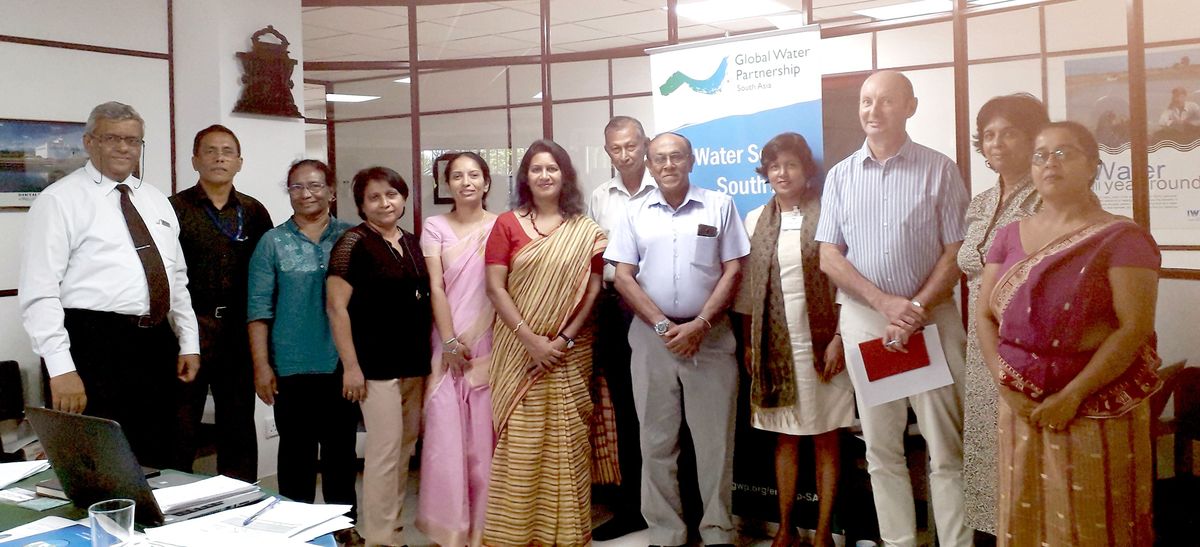Based on the successful participation of so many Partners at last year’s meeting, GWP organised the second online ‘Follow the Sun’ consultation, the Network Meeting 2019, on 25-26 June from 3.30 p.m. The GWP South Asia regional session was allotted on 26 June from 9.30-11.30 a.m. at this 29-hour long partner consultation. The Region connected to the meeting with GWPO through five country sites using a web conferencing facility. The five country sites were Bangladesh, Bhutan Nepal, Pakistan and Sri Lanka invited their Partners to attend the meeting and had their pre-meetings prior to the online session. Some of the partners who were unable to attend the face-to-face meeting have e-mailed their contributions for the discussion. The farthest way of joining the meeting was through GWP's Facebook live stream, which facilitated some South Asian partners and interesting parties to join the meeting.
The meeting gave an opportunity to the GWP Partners based in South Asia to engage directly with other Partners and with regional and global peers. The Partners expressed their opinion how GWP can implement new GWP Strategy 2020-2025, as a global action network. The discussions were based on two guiding questions, and reported back at the online meeting.
1) What are you doing to achieve the Sustainable Development Goals (SDGs), supporting transboundary water cooperation and mobilising the climate change resilience community to leverage the water agenda?
2) Addressing the water challenges in your country as a GWP Partner, which other organisations and groups would you like GWP to learn from, mobilise and engage with (and why)?
Some of the discussion points highlighted by the site facilitators are as follows.
- Transboundary water has a direct impact on water availability in South Asia, it is a highly politicised issue that needs interventions from the international community. Transboundary cooperation should start from the provincial level within a country before going to international.
- GWP’s network and its presence at the ground level is the strength of GWP that should be ustilised in mobilizing resources and developing its partner-base further.
- The Country Water Partnerships (CWPs) are advocating on Integrated Water Resources Management (IWRM) and still finds it is important to continue conducting awareness raising workshops on the topic.
- Enhancing capacity of marginalized, women and youth is key for developing resilient communities for climate change. Developing global youth leadership on SDGs and implementation of GWP Gender Strategy are some of the actions that needs to be prioritised in acting against climate change.
- Developing communities of practice can be considered as a sustainable initiative and the regions as well as countries are looking forward to interact with UNDP-CapNet and credible research and development organisations i.e. International Water Management Institute (IWMI).
- With the given financial dilemma, the region should consider novel ways and means to mobilse non-conventional donors and partners including the cooperate sector.
Altogether 78 South Asian Partners, which is nearly 20 per cent of the South Asia active regional partners, have attended the consultation. Representatives from UNDP Cap-Net, Government institutes and ministries, research institutes, universities, national and international non-governmental organisations and CWPs have attended the meeting online while UNICEF Regional Office and International Union for Conservation of Nature (IUCN) connected the meeting via Facebook live stream and few others through e-mail correspondence,
‘Follow the Sun’ is a format that allows GWP to consult with Partners in each region over a 29-hour period. Participants join the 2-hour session allocated for a region, and then at the end of the second hour hands over their input to another region. The Network Meeting culminates in a summary and forward-looking global session at the end, which was held at 4p.m. (Stockholm Time) on 26 June.
